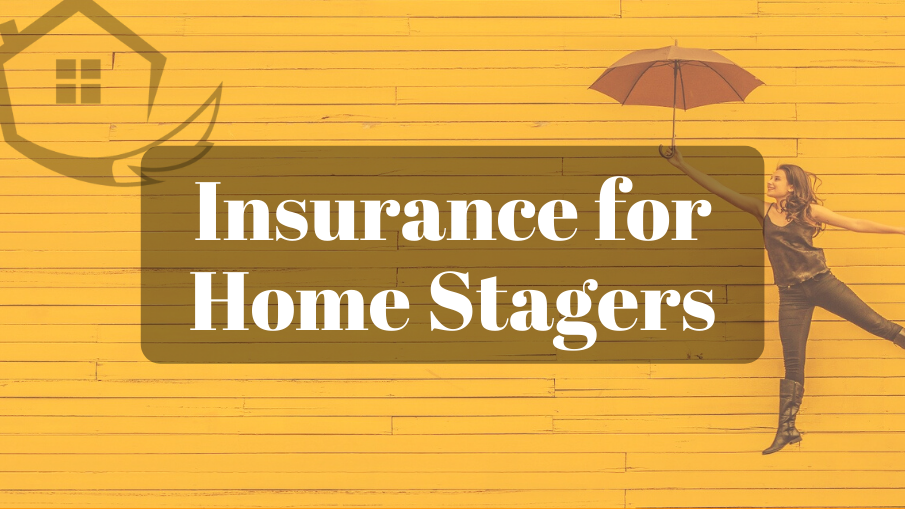If the last few years in business have taught us anything, it is how quickly things can change. To ensure smooth continuity of your business during unprecedented times, it is crucial to have the right cover in place.
Last year alone, having a well-constructed insurance policy has saved us thousands of dollars’ worth of stock we would have otherwise had to cover out of pocket (all because of a burst tap in a vacant property we styled).
—
The challenge lies in finding an appropriate insurance policy for a Home Staging Business.
Considering there are so many different ways a Staging Company can be structured and operated – no two policies might ever be the same. Some companies hire all their furniture from a third party, others might own enough stock to fill several warehouses.
Because each structure is so unique, we highly recommend engaging the help of an experienced Insurance Broker.
They can tailor the cover specifically to your own business.
At Foxy, our go-to person for all things business insurance is Melissa Berglas from Sunshine Coast Insurance Brokers. She is an absolute wealth of knowledge when it comes to taking out the right insurance cover specific for our industry. She also contributed to the writing of this article, so you may see her name pop up with some note-worthy additions.
Melissa Berglas
Director of ![]() Sunshine Coast Insurance Brokers
Sunshine Coast Insurance Brokers
| Ph: 07 5641 2545
| M: 0477 200 091
| E: melissa.berglas@abcomsure.com.au
| M: www.scib.com.au

Before you continue reading, please note that we have based the following examples off our own insurance policy we hold with Allianz Business Package. Other insurance companies may refer to their policies by different names and their rules of what is/isn’t covered may vary.
Insurance Policies for Home Stagers
 LIABILITY
LIABILITY
If you interact with the general public as a part of running your business, there’s always a chance an accident could happen. Public liability covers you if you have to pay compensation for any injuries, damages to the property or legal fees incurred from defending a claim against you.
—
We have this cover split into three different sub-categories.
- Public Liability – explained above
- Products Liability – if your supplied products cause damage or injury to a person on site
- Property in Physical or Legal Control – covers any damages to the property you stage
—
Note: Public Liability is not the same as Professional Indemnity. Professional Indemnity provides cover for a business that provides advice to their customers and charges a fee, such as an architect or solicitor. If you are providing advice or guarantee success to your clients (such as “We guarantee that your sales price will increase by 15% if you use our services”), you may open yourself up to a potential Professional Indemnity claim if the client holds you to account. Be careful with your wording!
Before you take out an insurance policy for your rented warehouse premises, always start off with reading the lease. Usually, any required insurance policies including specific dollar amounts are specified in the lease.
—
Our warehouse insurance is split into the following sub-categories:
- Property – covers any damage to the building
- Contents & Stock – covers any damage to the furniture and accessories
- Flood – this is an optional extension of cover, but we’ve decided to take it for added peace of mind, covering ourselves in case of flooding
- Glass – covers any damage to all the fixed internal & external glass fittings (windows, doors, etc.)
- Burglary – covers your stock in case of theft (WORD OF CAUTION: Some insurers pay only if there was evidence of a forced entry to the property, make sure you enquire about this before taking out the cover. More on burglary vs theft at the end of this article.)
- Machinery Breakdown – some landlords require this cover from their lessees (covering electronic equipment like A/C, etc.). In our case, our landlord has asked us to cover any maintenance cost while he covers replacement fees.
The comprehensive insurance policy provides you with cover for your truck – covering theft or any other type of accidental damage, including if you cause damage to other people’s property.
- Optional Extras – cover for truck hire costs following an accident
—
If your employees are using their own vehicles for work purposes, then you will need to ensure that their insurance is adequate and current, because this is not generally covered in Commercial Motor Insurance.
You need to tell your insurance broker, who is likely to add a clause to the Public Liability Insurance known as “Non-owned Vehicles” and this protects business owners against third party damage their employees may cause (if the employee is unintentionally uninsured for motor vehicle insurance). This clause does not provide cover for physical damage to the employee’s vehicle, therefore it is imperative that the employee has their own motor vehicle insurance in place.
Transit insurance covers any damage that occurs to your stock as a result of an accident during transit (incl. fire, collision and overturning). This relates to a vehicle that you own, not a carrier.
If you hire your furniture from a third party and they are responsible for delivery, Melissa (our insurance broker) recommends re-reading the hiring agreement, as it sometimes includes insurance. More often than not, the carrier will not include it unless you specifically ask for it.
—
Depending on your current liability policy, you may be automatically covered for Goods in Care, Custody or Control, in which case you may not necessarily need to take out the Transit insurance policy (which was the case for us – if in doubt, check with your broker).
Business Special Risk covers accidental damage of your stock in all your presently styled properties, Australia wide.
Most Home Stagers have a difficult time obtaining this cover, as there are not many insurers either willing to take on the risk, or they are not familiar enough yet with covering this particular service.
—
Important to mention: The sum insured does not need to cover ALL your stock, as the probability of an accident happening in every single one of your currently staged properties is extremely low (unless you are styling several apartments in one building or are in a similar scenario that poses the risk of making multiple claims).
“The best way to determine a sum insured is to think what a potential claim amount could be. If one of your properties has a fire how much would it cost to replace your stock. Also, be aware that insurance companies pay claims when they have determined that the real cause of the claim is covered (eg. Fire). So, if you have multiple units that you have styled in the one building or you know that a particular suburb is prone to flood then the sum insured will need to represent the replacement cost of your stock which is vulnerable to large claimable event.” – Melissa Berglas, Sunshine Coast Insurance Brokers
There are other policies that you can take out for additional cover. Because we don’t have any experience with these, we can’t comment on the pros and cons, but thought they are worth mentioning.
—
- Business Income Interruption Cover
- Management Liability
- Cyber Insurance Cover
Important to Know
Burglary vs Theft
This is a particular risk to us Home Stagers, because we don’t have control over the property being locked and let’s be honest – it’s not unheard of that an agent leaves a door unlocked.
Most (if not all) insurance companies will decline a claim where a real estate agent has left the property insecure, so it would be wise to discuss this with the agents prior to the install.
If your business has any contracts between a property stylist and a real estate agent, they should explicitly state that the agent is responsible for unsecured property.

Do I need to keep the receipts?
No you don’t, but do keep an inventory of your stock including:
- Date of purchase
- Supplier
- Price paid
Storing photos of the stock is also a good idea. An insurance assessor will only ask for receipts if you have happened to buy the stock being claimed in the past 6-12 months, however it is not essential to produce a receipt for a claim to be paid.

Terms & Conditions – do I engage a Solicitor or an Insurance Broker?
If you are drawing up your own Terms & Conditions between customers or contracts with real estate agents, then a Solicitor should be engaged for proper advice.
—
If you are negotiating with Terms & Conditions that have been presented to you for agreement, then forwarding the contract to an Insurance Broker to check the insurance requirements is recommended. If you need advice on items that are not insurance related it is best to seek legal advice.

Thanks for reading! We sincerely hope our article helped you get a bit more of an insight into the complicated world of Insurance.
If you have any questions or something to add, feel free to leave your thoughts in the comments.
Need a hand with sorting out your policy?
Reach out to Melissa!
Melissa Berglas
Director of ![]() Sunshine Coast Insurance Brokers
Sunshine Coast Insurance Brokers
| Ph: 07 5641 2545
| M: 0477 200 091
| E: melissa.berglas@abcomsure.com.au
| M: www.scib.com.au










Facebook Comments